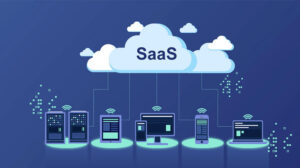The recent and rapid evolution of consumer technology has left many channels in an awkward state of transition. One of the most interesting examples of this comes in the form of the telephone. While landline connectivity is quickly beginning to fall out of vogue, the concept of making a phone call is still very much applicable in the modern day. Voice is still imperative to have, but the way it is being enabled has started to change.
Just because hardware is starting to show its age doesn't mean that the services that it enables are any less useful or important. Businesses need to get serious about making sure their essential mediums are as suited for the modern day as possible.
Moving phone service to the Internet
The idea of using IP connections for voice calls is not a new concept. Voice over IP (VoIP) has been around since the early '90s. But while it was once an ineffective fringe alternative, the incredible growth seen in consumer IT devices has made VoIP much more viable and relevant in the present day.
According to TMCnet contributor Oliver VanDervoort, these changes in quality are leading companies in North America to abandon their desk phones. Interestingly, they are not only moving to solutions that will allow them to make calls over the Internet, but that will allow them to retain voicemail capabilities, as well.
"Whether you have a hosted PBX or legacy system, the Bring Your Own Device (BYOD) trend and increased use of mobile has yet to disrupt the importance of getting one's messages," wrote TMCnet contributor Maurice Nagle.
This speaks volumes about enterprise communications. Clearly the desk phone is on its way out, but the attributes that people love about it are not. Calling and voicemail are likely to stick around for some time, even if landline telephones don't.
Fax machines similar to desk phones
There is one endpoint in enterprises that many people have believed to be long dead, even more so than the landline phone – fax machines. But while there are a great number of folks who wouldn't hesitate to send an email rather than deal with a physical fax, many industries are forbidden from allowing them to do so. This results in some disconnect between IT staffers and other employees that may not understand the reasoning behind restricted email use. If they see it as an unnecessary obstacle rather than a common-sense guideline, workers are more likely to ignore protocol.
The problem here isn't with the fax, but with the way it is initiated. Paper missives are seen in the modern day as cumbersome, and some professionals will even ignore tasks if they cannot be done in a completely digital manner. This is not an issue of laziness, but of frustration. They believe that the companies they work for don't see the same inefficiencies that they do, and there has to be an initiative taken in order to help streamline workflows.
This initiative, however, should be taken by the business and not its workers. Faxing is still critical for the foreseeable future, but legacy equipment is not the only way to make it available. Like the telephone, the fax machine is being migrated away from in favor of digital solutions that carry the same abilities. There is nothing wrong with the channel itself, but there have to be changes made in order to best compete with modern rivals.
Enhance enterprise communication, collaboration and compliance efforts with a proven FoIP solution from FaxCore. Contact FaxCore today to learn more about their 'Partly-Cloudy' fax solutions.




